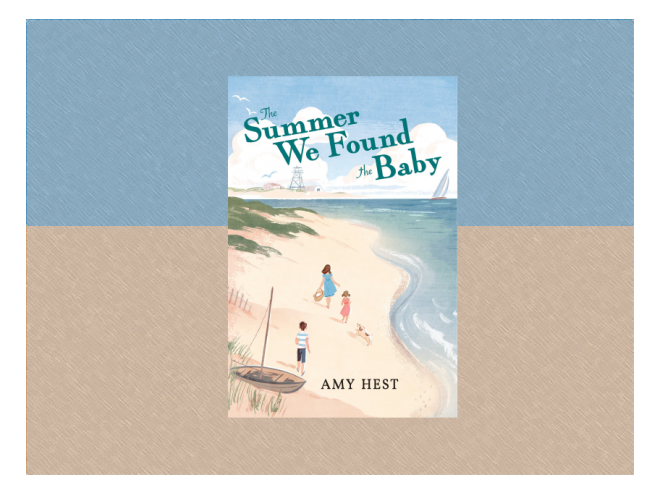Amy Hest’s The Summer We Found the Baby immerses readers in the World War II era, with the emotional intensity of childhood and the authentic experience of the war on the American homefront. Alternating chapters are narrated from the points of view of three different children, each struggling with a past loss or a potential future one. Julie and Martha Sweet’s mother died shortly after Martha’s birth. Their father is an author whose “…name is on three different books. All three are in the New York Public Library!” He brings them from New York City to spend the summer on Long Island where they meet twelve-year old Bruno Ben-Eli, a local boy whose beloved older brother is serving in the US Army. When a baby mysteriously turns up on the steps of the local library, the children’s responses to this unusual event become the background for their attempts to understand their own individual problems in the context of a difficult time. Hest’s sensitivity and unobtrusive narrative skills create a story which is accessible to young readers and fosters a rich discussion of family, community, and the resilience of children.
Hest seamlessly weaves together the mystery of the abandoned baby with her characters’ personal struggles. The book is divided into sections, each with intriguing titles that are both literal plot points and key to the characters’ inner lives. “Leaving the Scene” presents the drama of finding the baby, as well as the emotional needs of girls who have themselves been deprived of mothering. The section titled “Binoculars” alludes to Bruno’s fierce possessiveness of this item, loaned to him by his absent brother, but also to Martha’s fantasies of the aching gap in her life. To her, the binoculars are magical, able to conjure up the phantom figure she has never known: “And then one day you’ll see her! And she’ll be perfect!”
The Ben-Eli family has several important dimensions. Bruno’s devoted father is the owner of the local deli and variety store and respected by the local residents, while also remaining a strong figure, supportive of his family. Bruno’s mother, concerned about her older son, involves herself in both her domestic role and her frenetic activity promoting the town’s library and its services to children. Bruno is sometimes frustrated by her seemingly omnipresent role in his life but also proud of her status in the community. But to Martha, Bruno’s mother becomes the mother she has never known. Hest’s understated tone ensures that Bruno’s mother is not overly idealized. She lets the Sweet sisters know that she is always available but does not overwhelm them with intrusive attempts to categorize their loss. When she writes a letter to Eleanor Roosevelt, thanking the first lady for her dedication to the troops, her formal language is a controlled way of articulating her sadness and fear. Her enlisted son’s name itself, Benjamin Ben-Eli, reinforces the solidity of the family bond. Mrs. Roosevelt’s appearance in the story is not a mere cameo. This tall, maternal figure in “clunky brown shoes and long blue dress,” is another stabilizing mother-figure.
The chapters roll by like a movie about the war, but with a subtle undertone replacing overt heroism. The romance between Benjamin Ben-Eli and Tess, a young nurse in training, takes place in ice cream parlors and on the beach, but their love for one another is refracted through the lens of the young narrators. Ultimately, the relationship is less about ardor and more about family, the stability of parents, grandparents, and their surrogates in mending a broken community where many residents have lost sons, fathers, and brothers. Julie and Martha’s father is working on a book about wartime sacrifice called Every One a Hero. The title refers not only to the gravely wounded soldiers receiving treatment at the nearby base and hospital, but to all Hest’s characters — extended family members supporting one another through loss and joy.
Emily Schneider writes about literature, feminism, and culture for Tablet, The Forward, The Horn Book, and other publications, and writes about children’s books on her blog. She has a Ph.D. in Romance Languages and Literatures.




